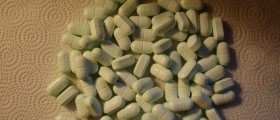
How to Treat Pain at Home?
Some patients might be able to help themselves at home and ease their pain. However, this is true only for milder pains, while serious cases must be treated by a medical professional.
First of all, chronic pain sufferers experience problems with sleeping and some usual everyday activities because of their condition. To solve this, they may try some simple home remedies or over the counter (OTC) drugs.
Balanced diet, rich in vitamins, especially B and D is found to be beneficial for chronic pain. Consult your doctor or dietitian about the proper diet and follow this regime. Get sufficient amount of sleep and you will feel better. Some patients may benefit from counseling, since untreated anxiety and depression are known to provoke even greater pains. Complementary therapies may also work for you and some patients think very highly about mediation and acupuncture. Proper and regular physical activity of your choice is also good for anyone suffering from chronic pain.
Consult your doctor and ask him or her which OTC pain killers will work best for you. Aspirin, acetaminophen and ibuprofen are frequently recommended medications for this purpose. Never use these drugs for more than 10 days, without consulting your doctor first. Additionally, your doctor may treat existing health problems which contribute to your pain, increase the strength or change medications you are taking, or prescribe some physical or electrical stimulation therapies, like TENS (transcutaneous electrical nerve stimulation).
Medications for Chronic Pain
Your doctor may prescribe several different groups of medications to manage chronic pain, such as: non-steroidal anti-inflammatory drugs (NSAIDs), opioid analgesics, tricyclic antidepressants or anticonvulsants. The most commonly used drugs are probably: acetaminophen (Tylenol), NSAIDs like Aspirin, ibuprofen, naproxen and ketoprofen, amitriptyline and pregabalin and gabapentin. Opioid analgesics, like morphine, oxycodone, hydrocodone, nerve block therapy and trigger point injections may also be used for severe pains. In some cases, your doctor may recommend taking some corticosteroid injections (prednisone) or using capsaicin or EMLA creams, lidocaine patches or cooling sprays.







,-Or-Ibuprofen-Which-Over-The-Counter-Painkiller-Should-You-Choose_f_280x120.jpg)









Your thoughts on this
Loading...